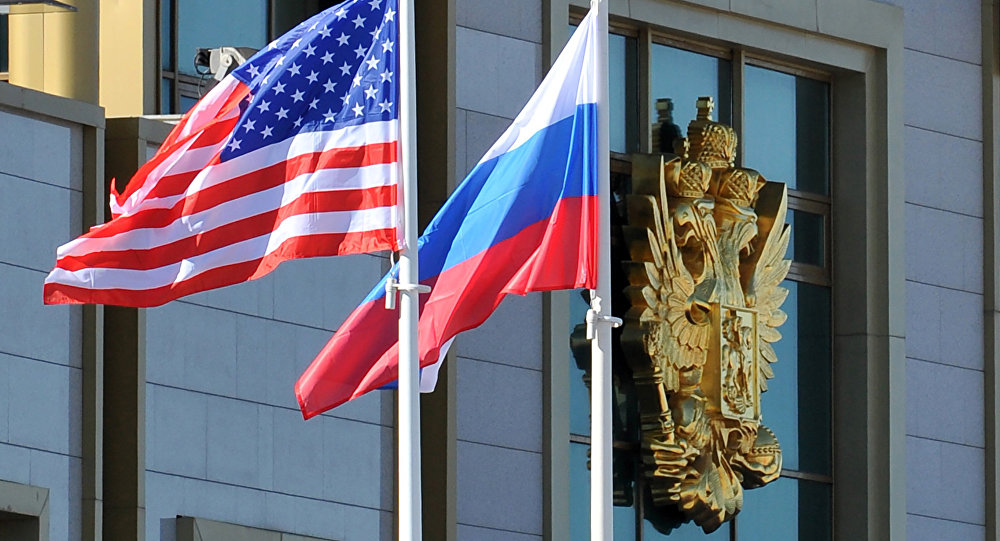
 The Chairman of the Russian Federation Council's Foreign Affairs Committee Konstantin Kosachev has said in an interview that the decent collaboration between Washington and Moscow is vital for the world’s security.
The Chairman of the Russian Federation Council's Foreign Affairs Committee Konstantin Kosachev has said in an interview that the decent collaboration between Washington and Moscow is vital for the world’s security.
WASHINGTON (Sputnik) — "We understand perfectly well that normal bilateral cooperation between Russia and the United States of America is of a crucial importance for global security," Kosachev told CNN on Monday.
Kosachev said there were 27 US-Russian bilateral working groups for different issuesthat were halted by the previous administration.
"As for now, we don’t have this commission and we don’t have any other channels of communication," Kosachev said.
He added that Russian Foreign Minister Sergey Lavrov and US Secretary of State Rex Tillerson would meet each other sometime, and there is some communication between Russian Deputy Foreign Minister Sergey Ryabkov and his US counterpart Thomas Shannon.
"But that’s all. It’s a kind of one-way window. We have to go through that window in order to reach other American governmental bodies, agencies whatsoever," Kosachev said. "We have certain cooperation between Ministers of Defense in Syria, but it’s just about Syria, nothing more, and we don’t have any cooperation on countering terrorism. We don’t have any cooperation on other issues of global security. And I believe this is an absolutely wrong approach, but this approach was initiated by the United States of America."
The lawmaker also noted that there are no inter-parliamentary contacts between the two countries.
On Responding to the "Unfriendly" Actions Towards RT Broadcaster and Sputnik News Agency
The Russian senior lawmaker also commented on the "unfriendly" actions by the US authorities towards Russian media outlets such as RT and Sputnik.
"We will have to respond on very unfriendly and undemocratic actions against Russian mass media in the United States like RT and Sputnik," Kosachev said in a Monday interview with CNN.
And this is not the only case when Moscow is forced to respond to US actions, the lawmaker added.
When asked to comment on the latest statement by Russian President Vladimir Putin that Moscow would respond immediately and symmetrically if the United States quits the Intermediate-Range Nuclear Forces (INF) treaty, Kosachev underlined the word "respond.""This is what Russia is forced to do each time America takes any unilateral steps," he explained. "And, yes, we will have to respond the same way in case the United States of America will continue breaking very important disarmament agreements like INF and others."
Russian media, especially the RT broadcaster, has faced significant pressure in the United States. Most recently, the channel was requested to register under the Foreign Agents Registration Act (FARA) by October 17. Russian officials, including the ones from the Foreign Ministry, have repeatedly said that Moscow has the right to react with a reciprocal response if Washington chooses to curb the work of the Russian media in the United States.
In early August, Washington imposed its newest package of anti-Russia sanctions, which spurred Russia to announce that the diplomatic presence of the United States would be cut by 755 people to 455, the same number of diplomatic personnel that Russia has in the United States.Washington responded with closing several Russian diplomatic facilities including the Consulate General in San Francisco. After Russian diplomats left the diplomatic compounds, US security agents entered the premises to perform searches. The Russian Foreign Ministry said that these actions were violating the Vienna convention on diplomatic and consular relations.



_jpg/250px-ElbeDay1945_(NARA_ww2-121).jpg)





